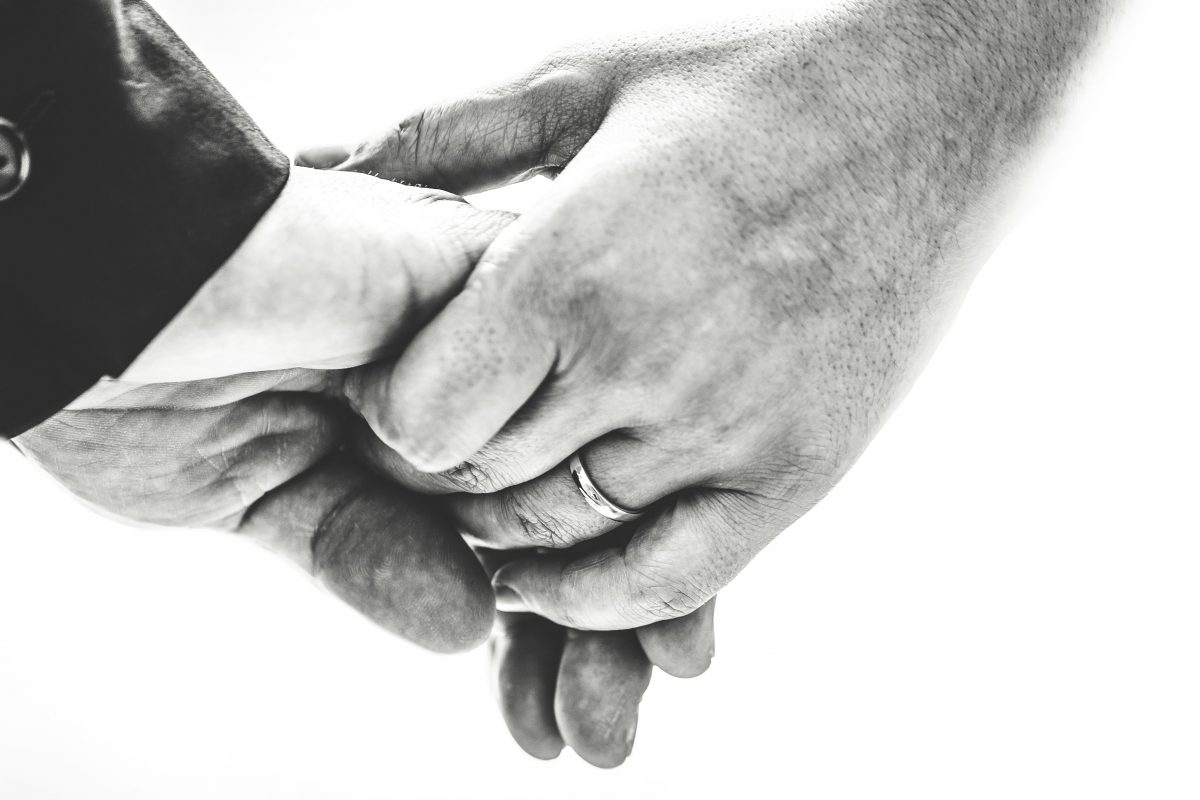In an earlier life as a producer/director, I did a piece on an old folks home.
As the crew and I were criss-crossing the place shooting “B-roll”, we saw an old couple sitting in the sun, holding each other’s hand on the surface of a table, dignified and content, but not conversing. The unspoken intimacy was arresting.
When I asked to get a shot of them, the woman nodded OK. When we passed by a second time and saw them still quietly holding hands, I asked if they would do an interview. She smiled and shook her head.
We saw them several times that afternoon and each time they were silently holding hands, looking peaceful and grounded.
They are in their own world, I thought, happy together. They had clearly said everything they needed to say to each other and had experienced everything they needed to experience with each other, except for one more touch of the other’s hand.
I thought of them today as I hunkered down in the face of the Coronavirus.
We are are pack animals, you and I, along with the rest of humanity. We band together in times of joy and sorrow, peace and war. If you doubt me, check other pack animals, dogs for instance. Their version of holding hands is snuggling, especially when they’re sleeping. Humans do that, as well as hug and hold hands. We put an arm around a shoulder, slap a buddy on the back, high five each other, etc. Touch is part and parcel of being human.
Shaking hands, which began hundreds of years ago to demonstrate not having a weapon, is second nature. Or was, until now. Elbow bumping is the new handshake – Oops!- or was. Now, even that is discouraged because it breaks the six foot rule.
Something as natural and instinctive as holding hands – with your lover, your child, your grandparent, your friend – taken away by this pandemic. Wow.
Of course, that won’t bother non-touchers, germaphobes, for example, or landed gentry types. Or people from cold climates. My guess is they don’t hold hands a lot in Arctic, but who knows? Maybe they just keep their gloves on and go for it.
In old western movies, instead of shaking hands, Native Americans – “Indians” – would hold one hand at ear height, palm facing out, and say “How”. Please note: it was not “How?” or “How!”; just plain “How”.
I have no idea if that was a real custom or something thought up by Hollywood, but it was in a lot of movies.
When I was a kid, Bob Hope starred in a movie called Pale Face. At one point an “Indian” holds his hand up to Hope and says, “How”.
Hope says: “-do you do?!”
I thought that was about as funny as funny gets. (OK, you can laugh, too. No-one will ever know.)
Maybe “How” could replace the handshake! Um, No.
Until we conquer the Coronavirus, the human touch will be a thing of the past, like the two-step or “bussing” (that’s kissing in old people talk).
I don’t have any great ideas for what could replace the human touch, especially with the six foot rule. I guess we’ll all have to use our words better than we once did. Maybe a few more “I love you’s” would help. But that’s very one-dimensional. The human touch covers so much more.
One night, when my oldest daughter was about five, her mother and I were putting her to bed. “I love you”, we said as we turned out the lights.
“I love you”, she replied, as usual.
Then, emphatically, “And I like you!”
That touched us almost as much as one of her hugs. It’s been a family saying ever since.
I’m not suggesting it as a replacement for holding hands or an arm around a shoulder, or an old fashioned kiss. But using words like that might be a start.
Beyond that, I guess I’ll just remember the intimacy of an elderly couple quietly holding hands in an afternoon sun.
